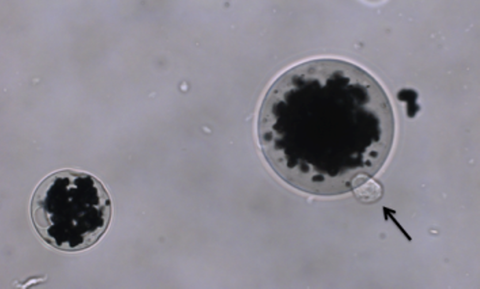
A diagnostic tool is being developed that enables physicians to see cancer responding to treatment in real-time.
ProKyma, a spin-out from the Defence Science and Technology Laboratory (Dstl), has announced a £482,000 award from the National Institute forHealth Research (NIHR) to apply its technology to improve the detection of cancer.
The technology, known as the KymaSep system, is the result of six years’ development at ProKyma that started from Dstl’s work to develop continuous detection systems for biothreat agents.
KymaSep is a small, portable system that is based around an injection-moulded device, providing simple operation at low cost, making it ideal for clinic or point-of-care use.
The NIHR support will allow ProKyma to apply its ’KymaSep’ technology to purify and concentrate very low numbers of Circulating Tumour Cells (CTCs) through automated manipulation of magnetic particles in a blood sample.
Once purified, the cancer cells can be sequenced to find the patient’s specific cancer mutation. The information produced will allow for the cost-effective measurement of the numbers of CTCs during initial diagnosis, as well as monitor their potential reduction during treatment, allowing the oncologist to have a unique tool to adapt and change therapy if the CTC numbers do not decrease.
ProKyma is working with a multidisciplinary team in Merseyside to meet the technical challenges in this project.
A long-standing collaboration with the UK Centre for Tissue Engineering at the University of Liverpool will lead to the optimisation of a unique cell-capture technology, licensed from CellCap Technologies, to enable the capture of the very low numbers of cells needed for CTC detection (5 CTC cells per test-tube of blood).
The NIHR Liverpool Pancreatic Biomedical Research Unit will use the method for the capture, sequencing and enumeration of CTCs. The optimised method will be translated by ProKyma into a device for routine use and
tested against samples from the Liverpool Cancer Trials Unit to measure the usefulness on real patient samples.
With the funding and support of NIHR, ProKyma will be looking to develop its technology to a point where it can raise a Series B funding round by the end of 2014 to begin manufacture of the CTC monitoring product in Merseyside.

